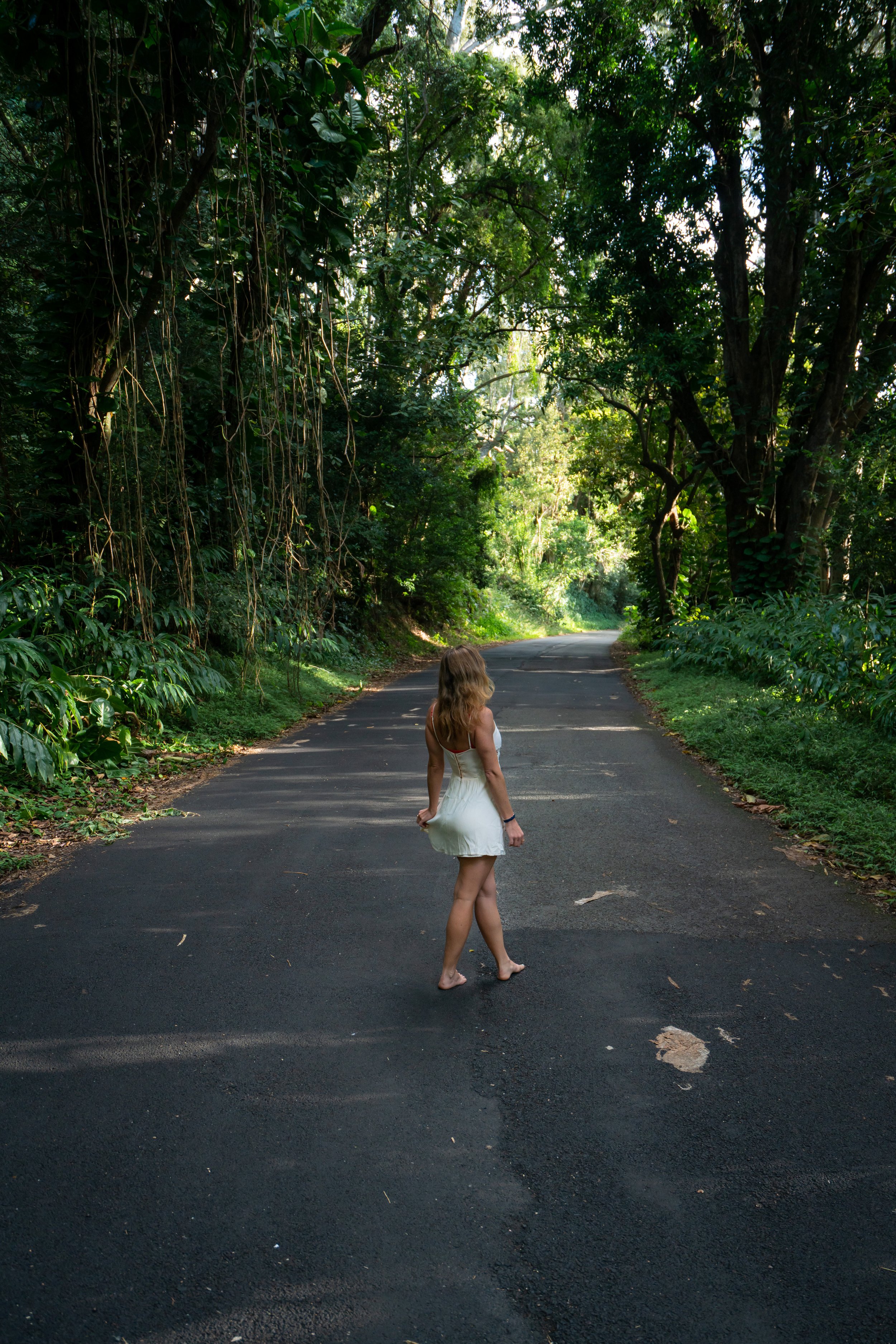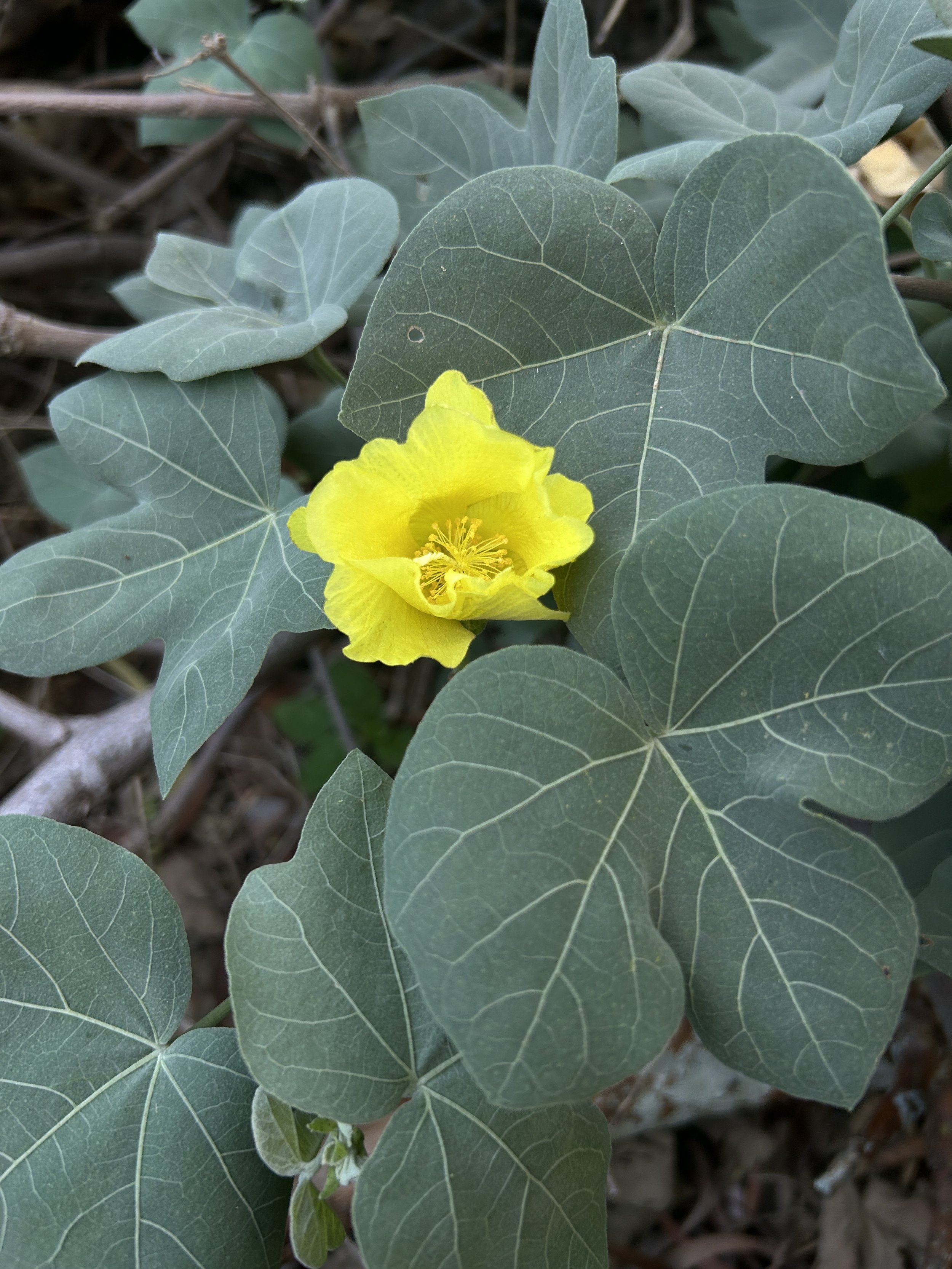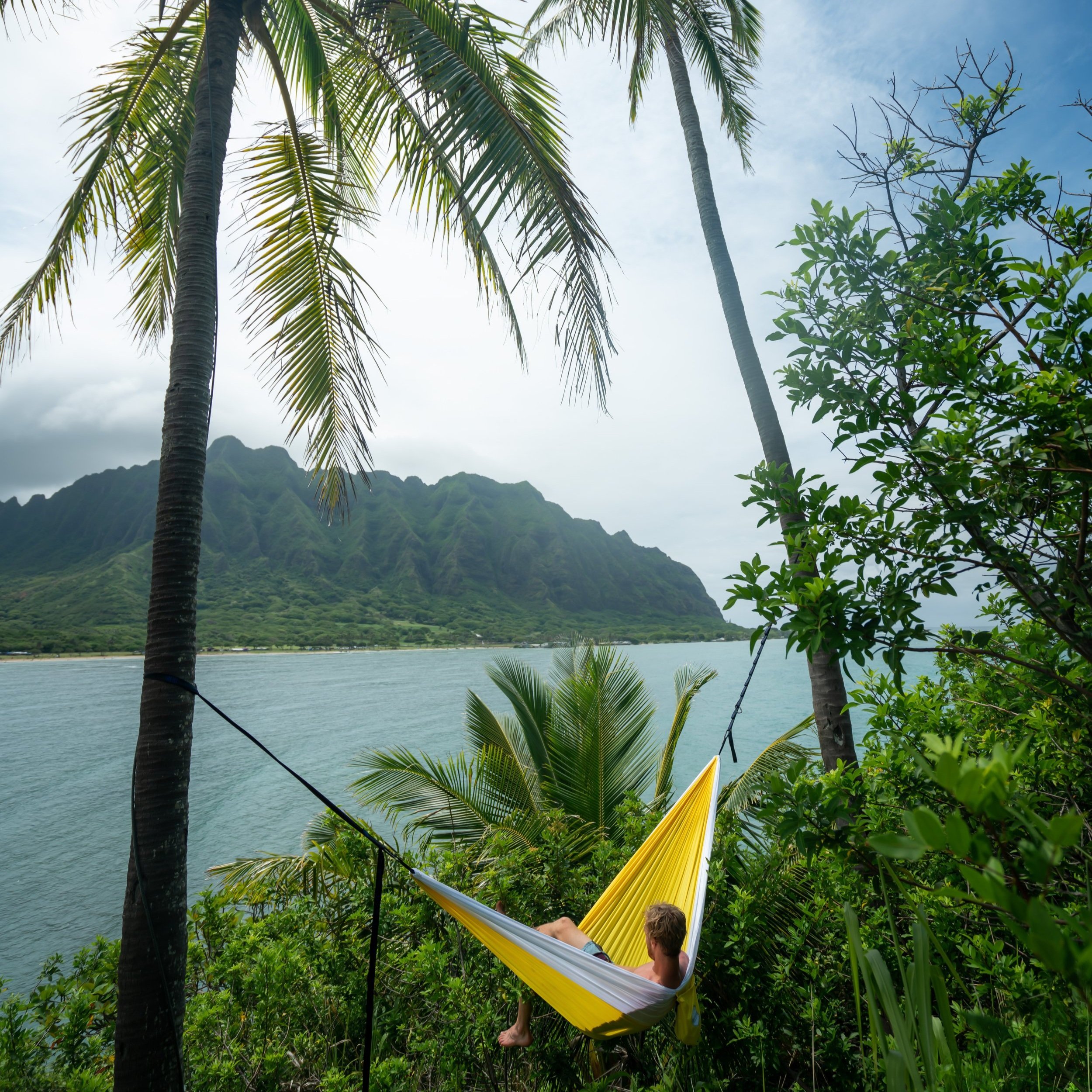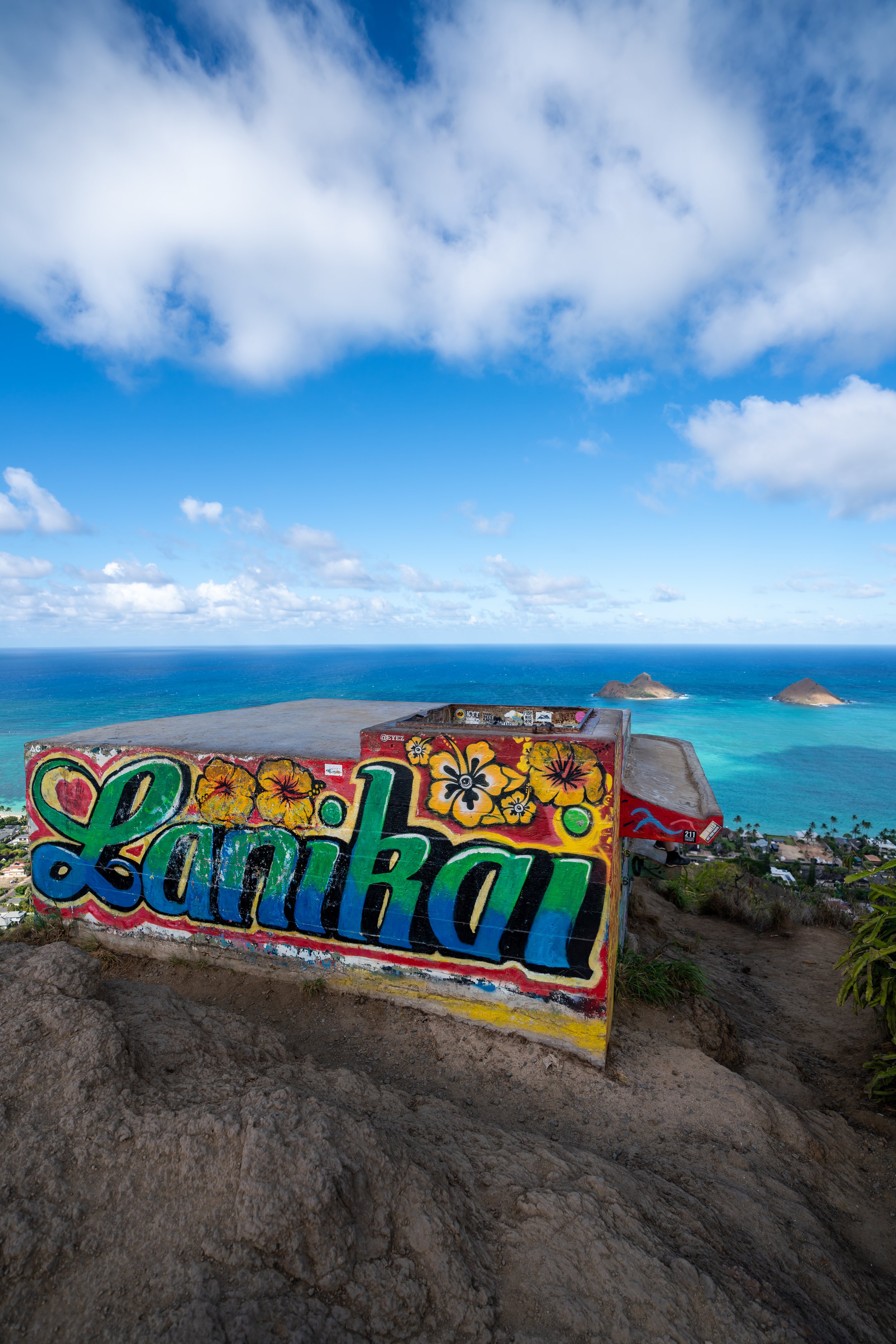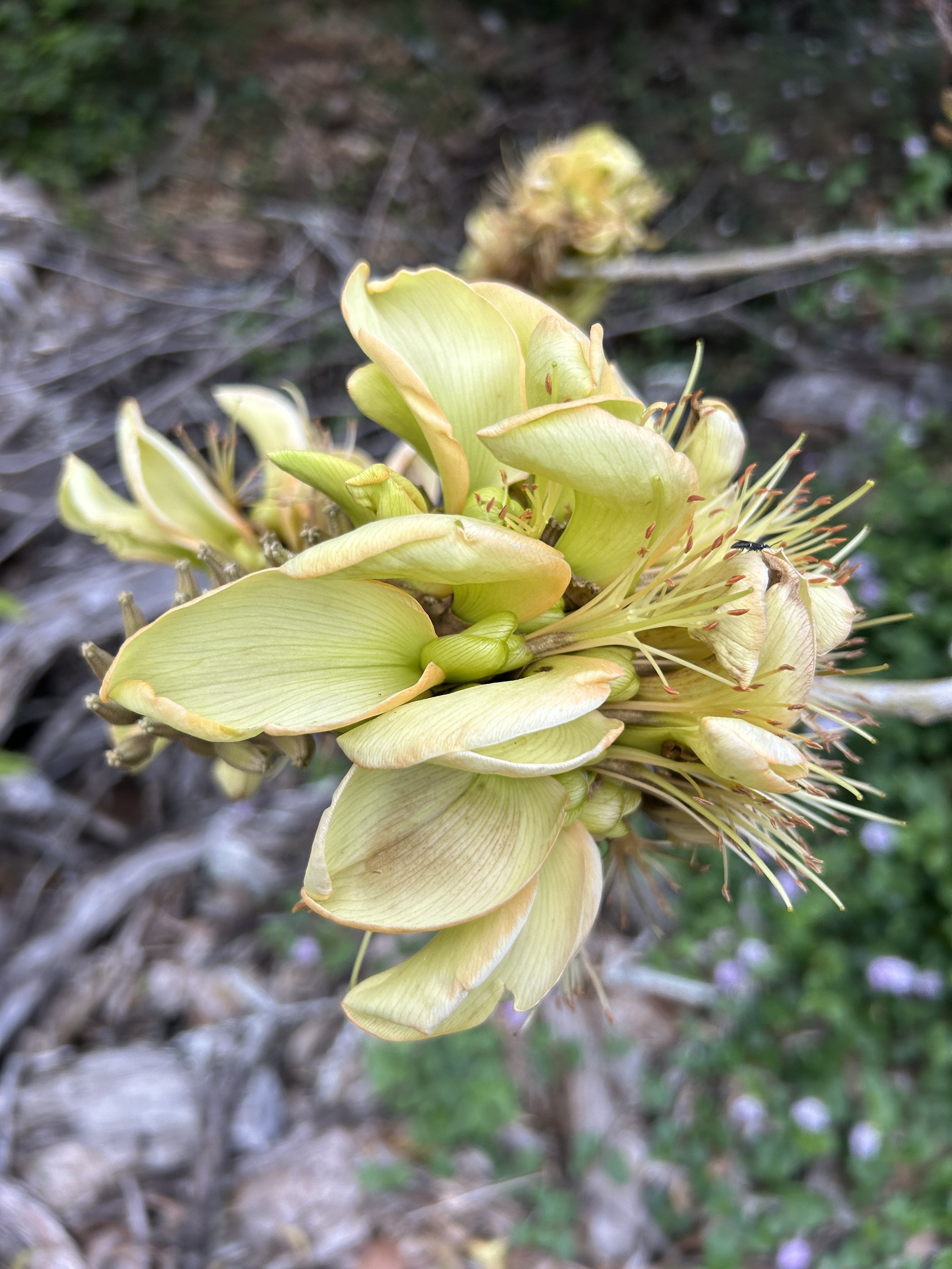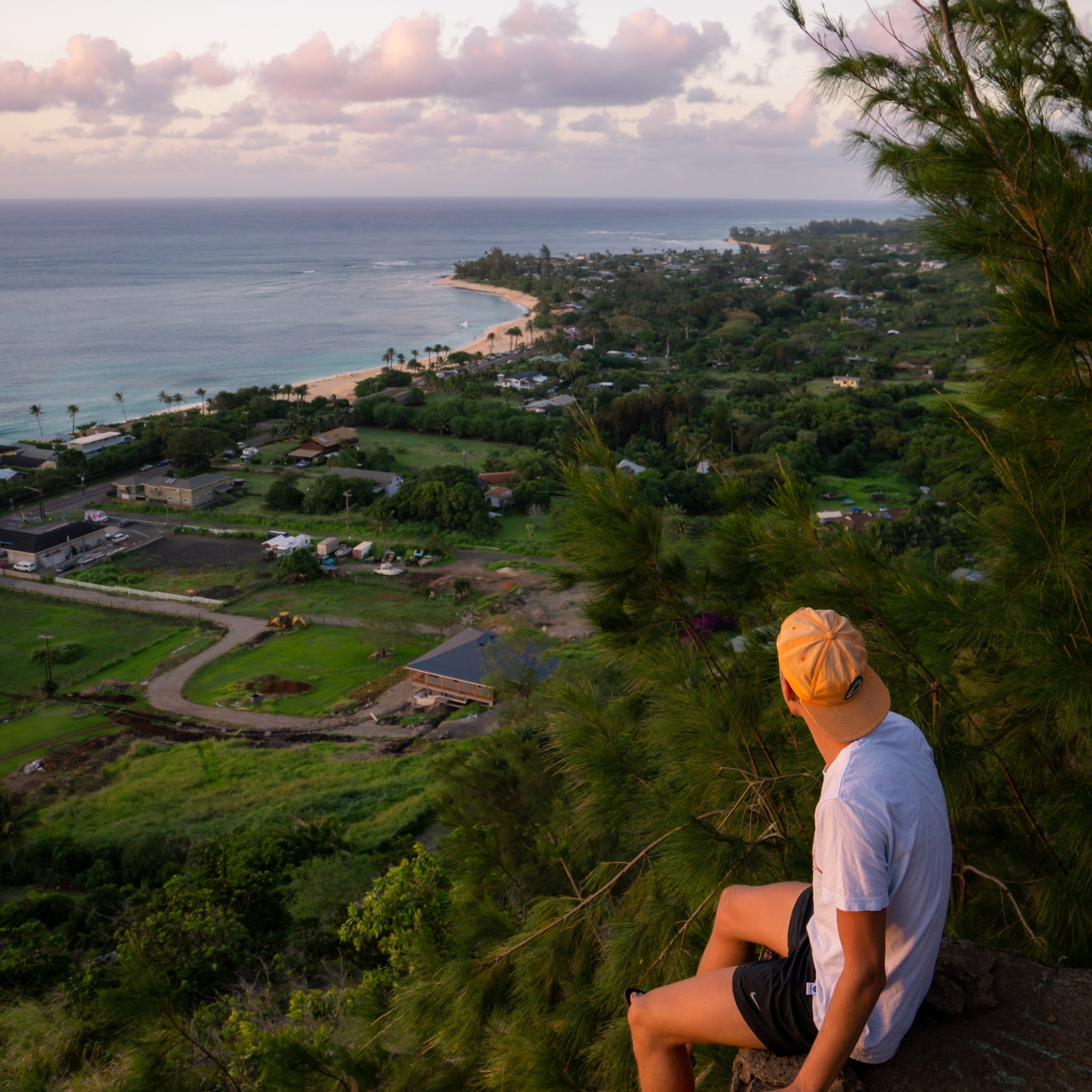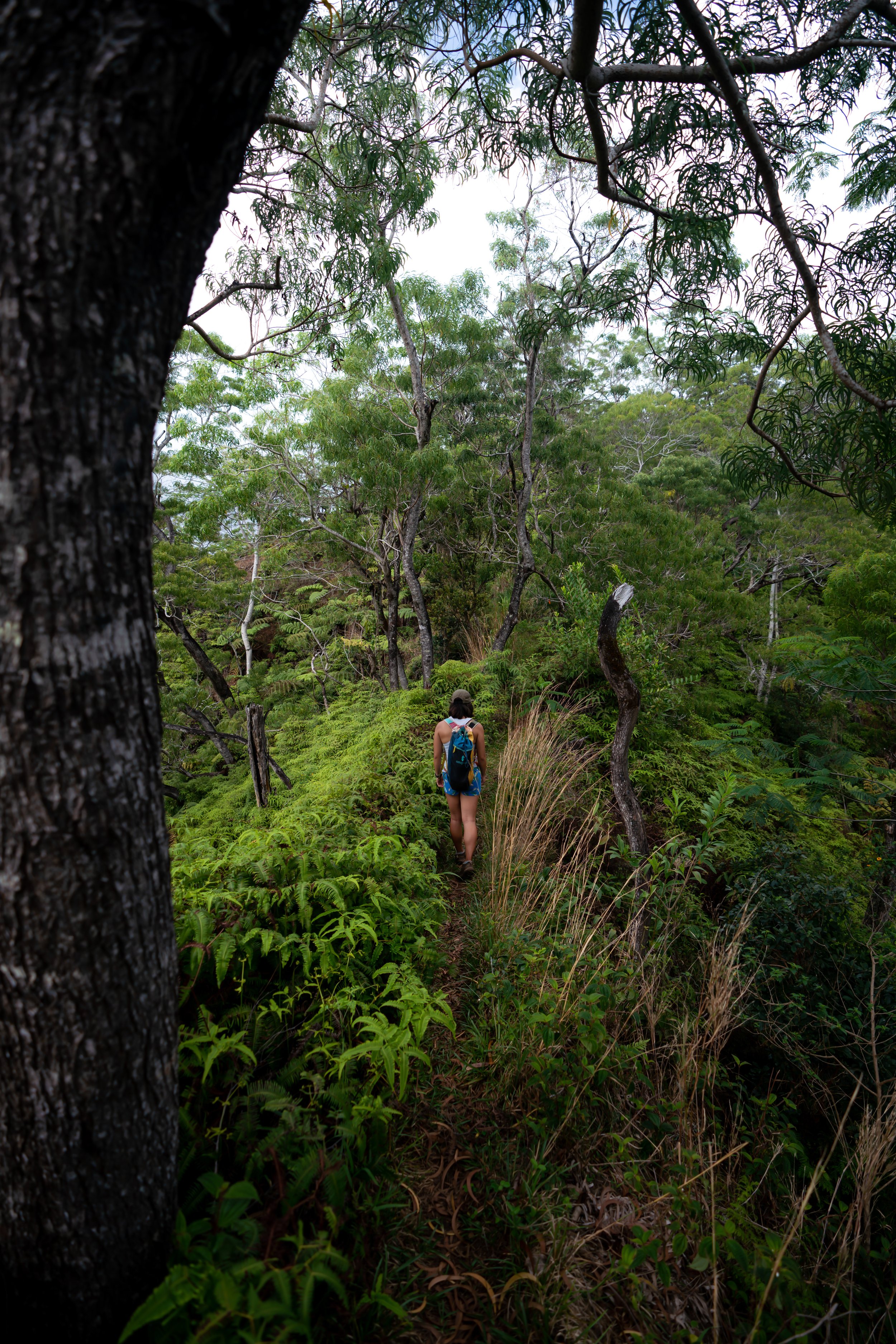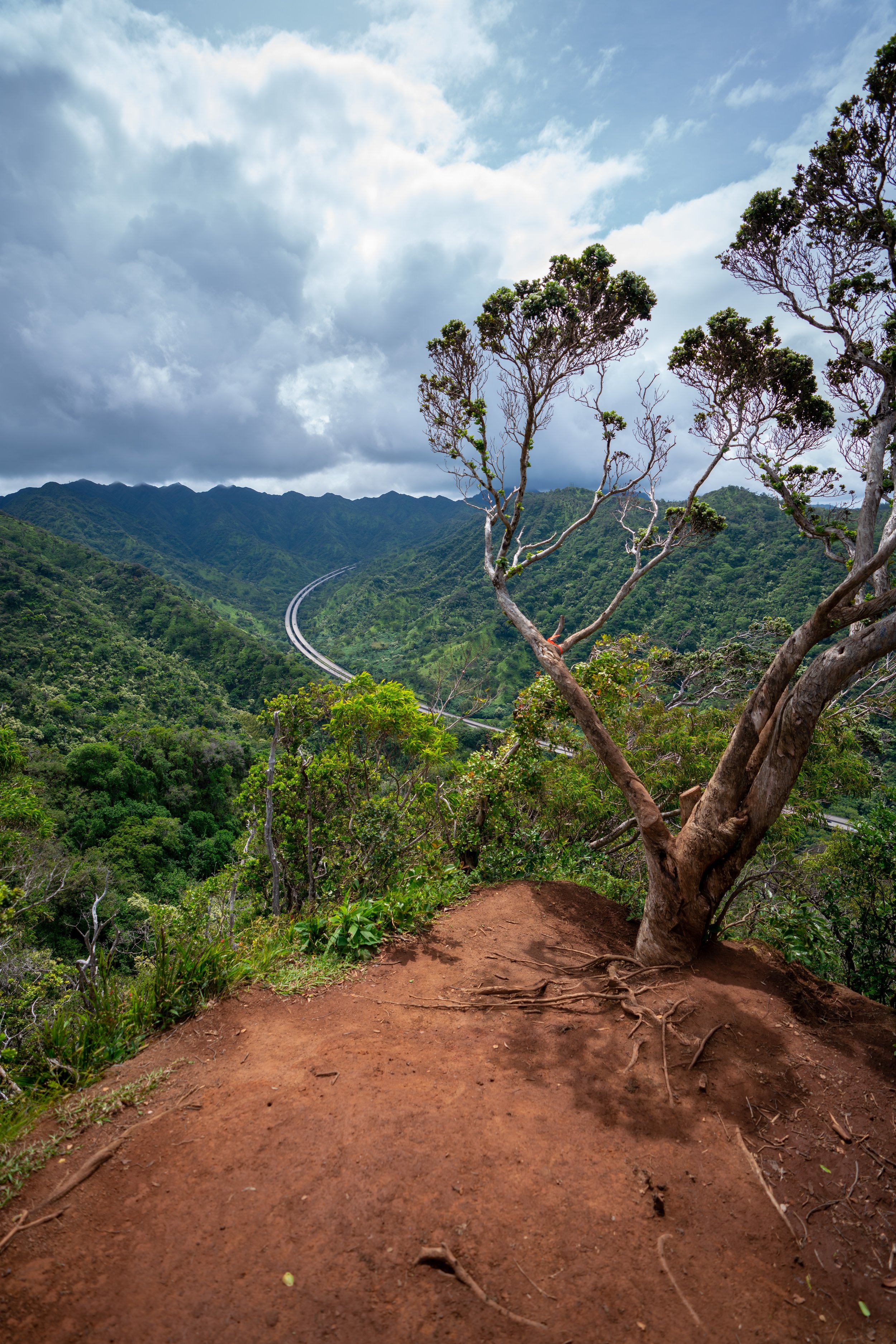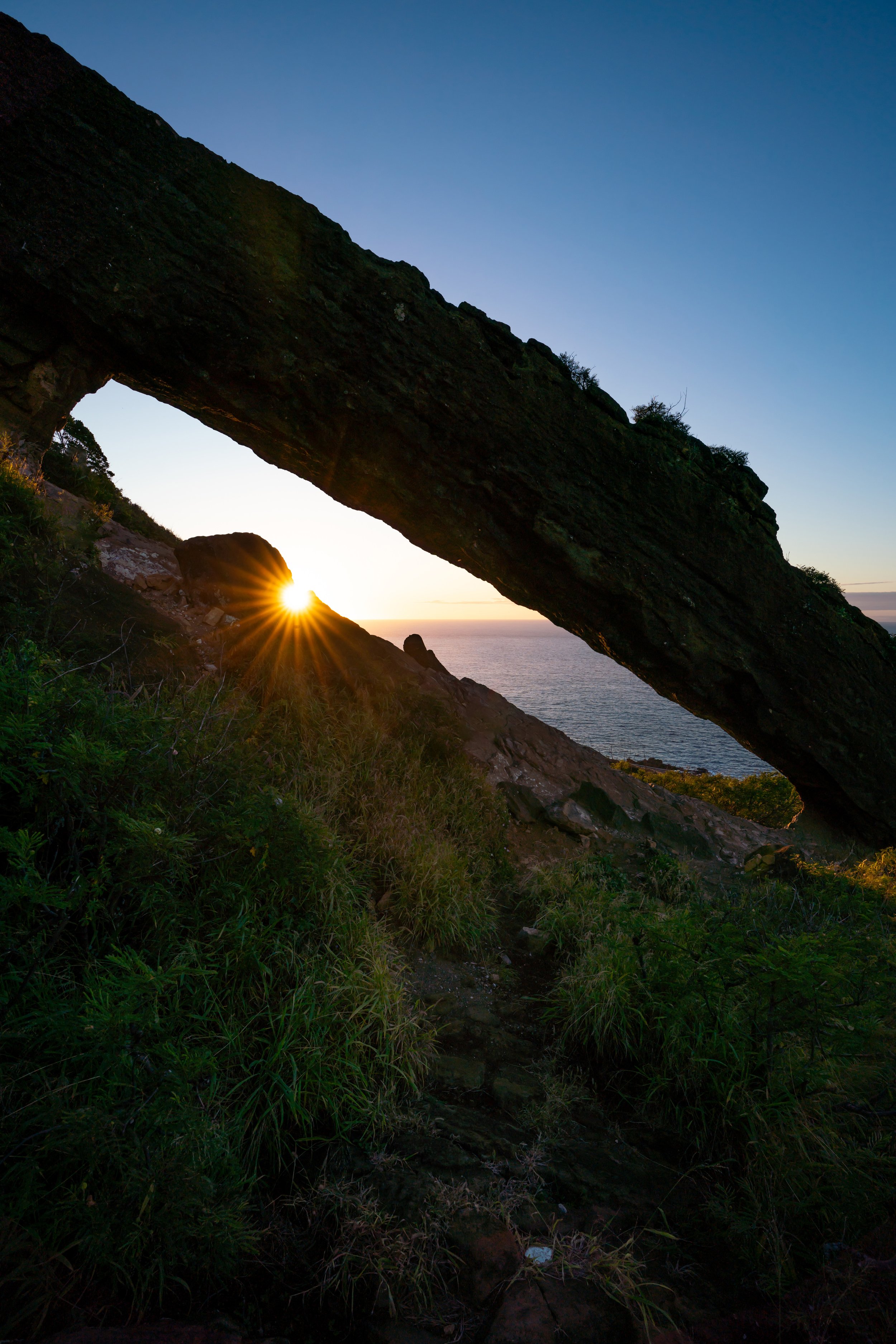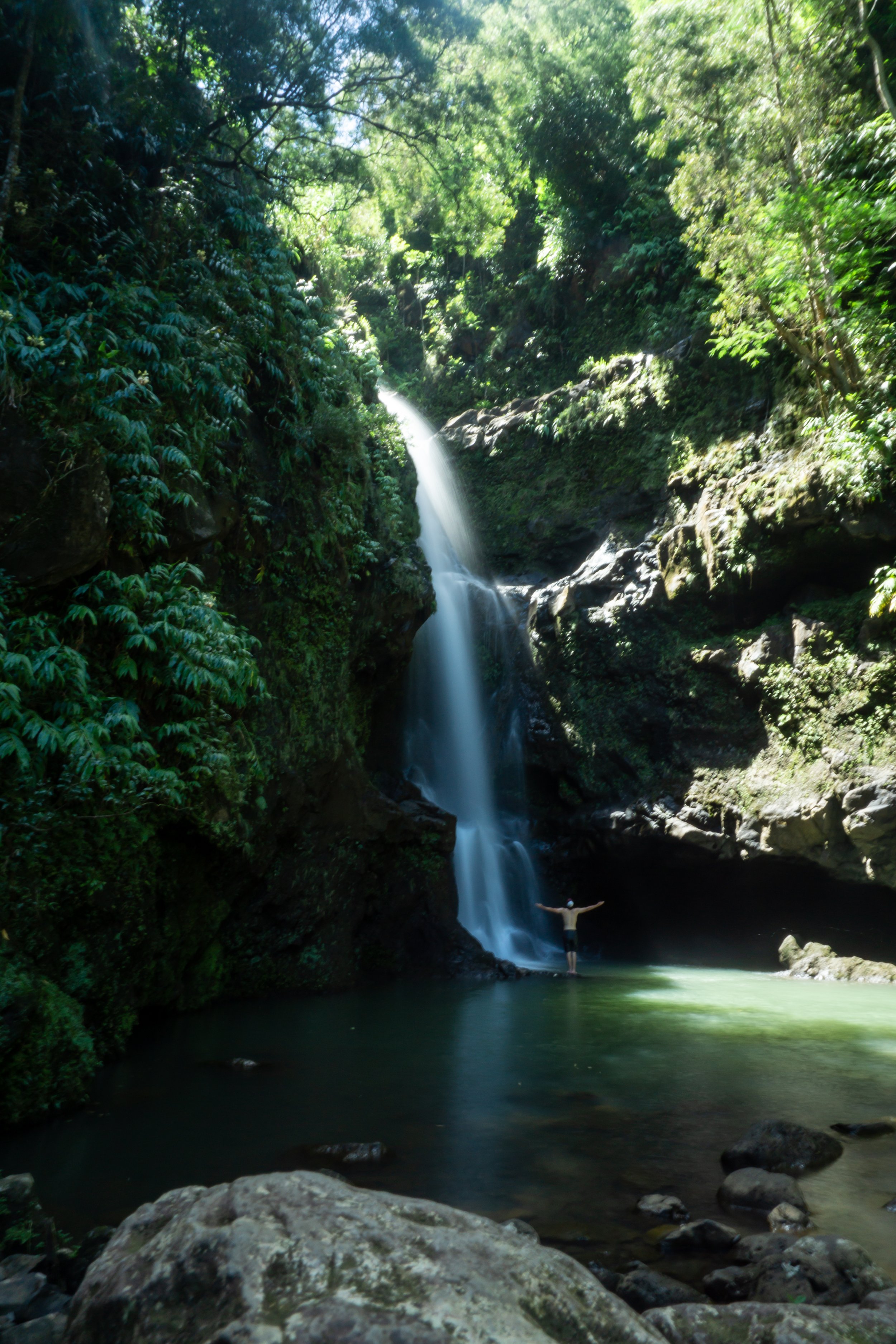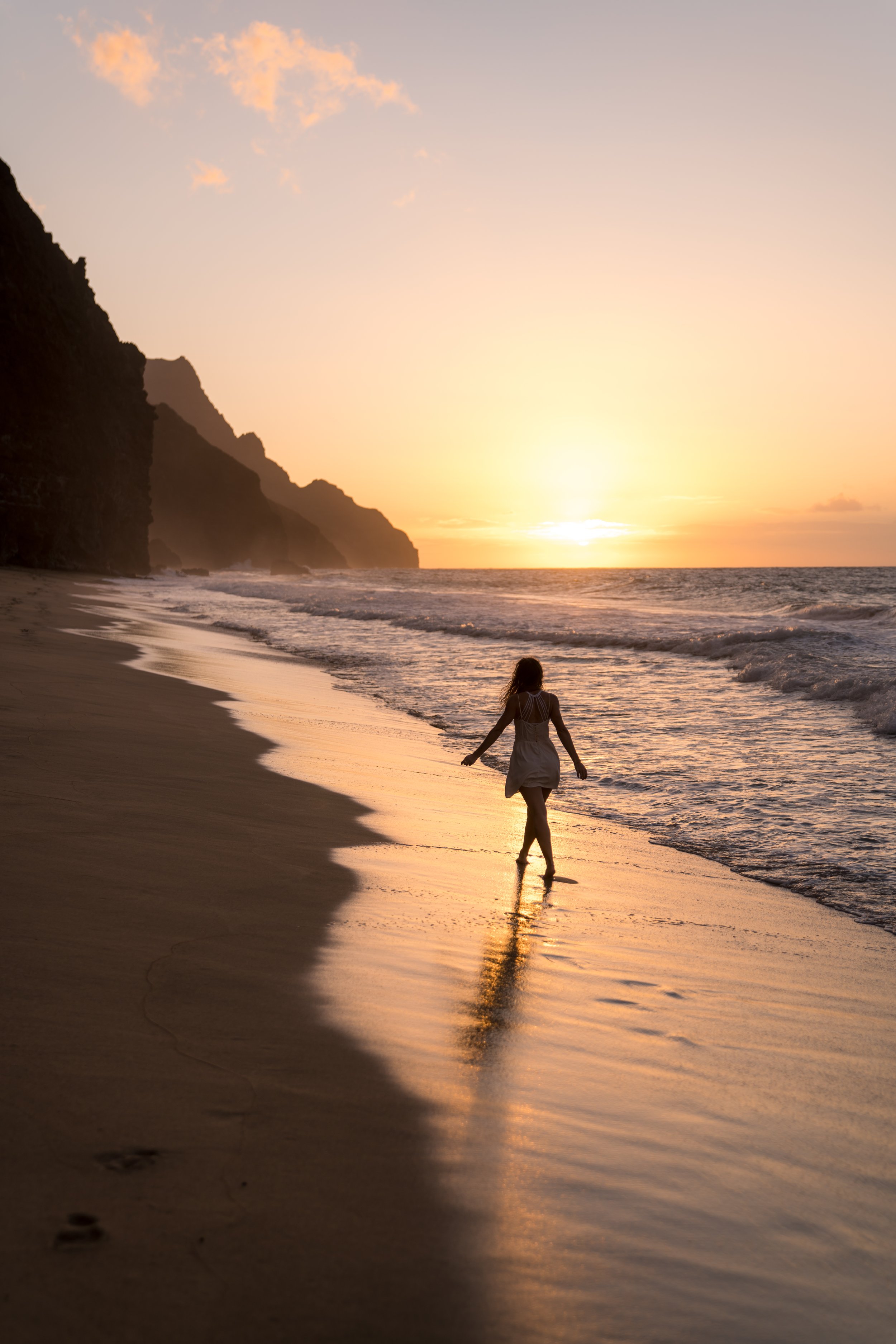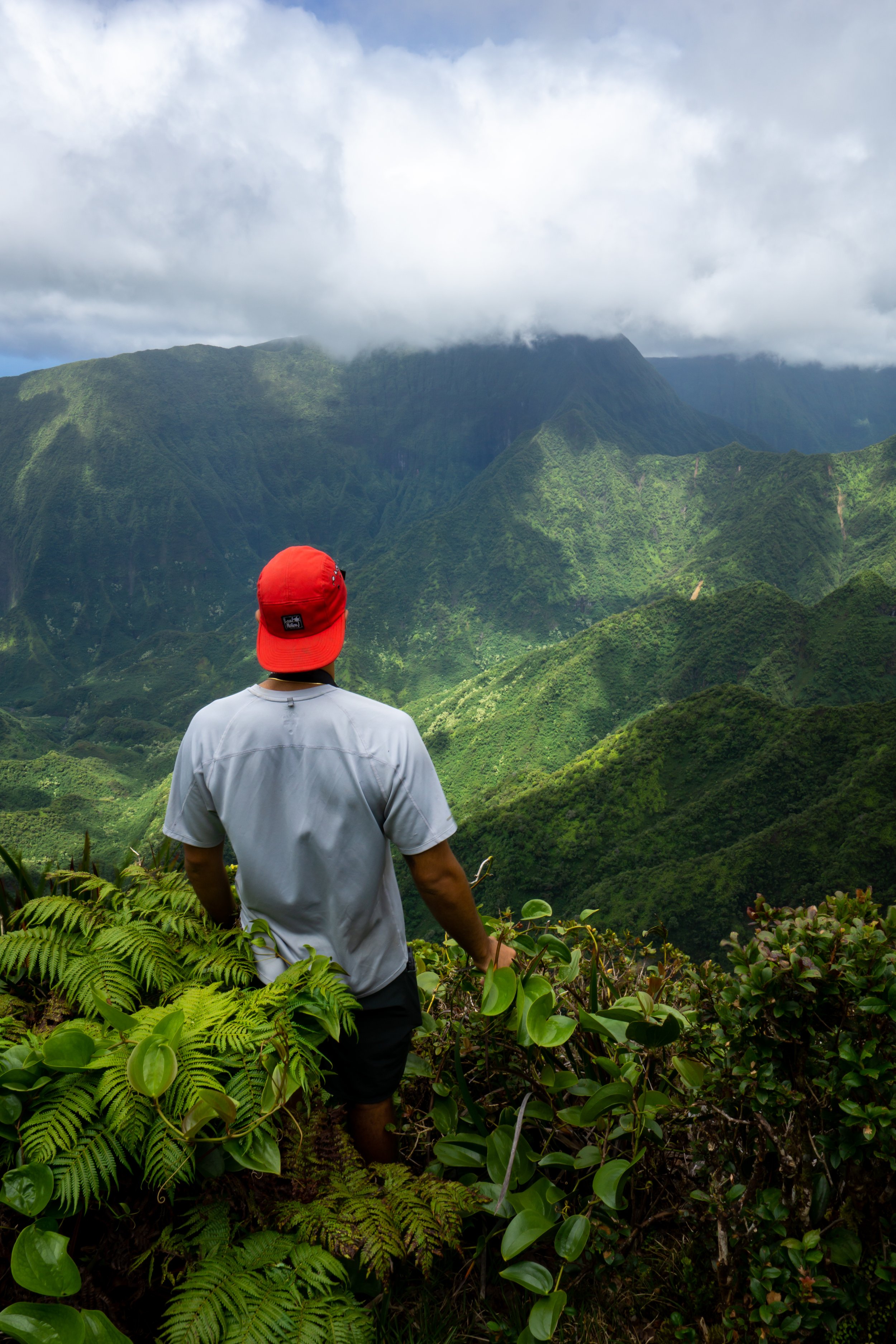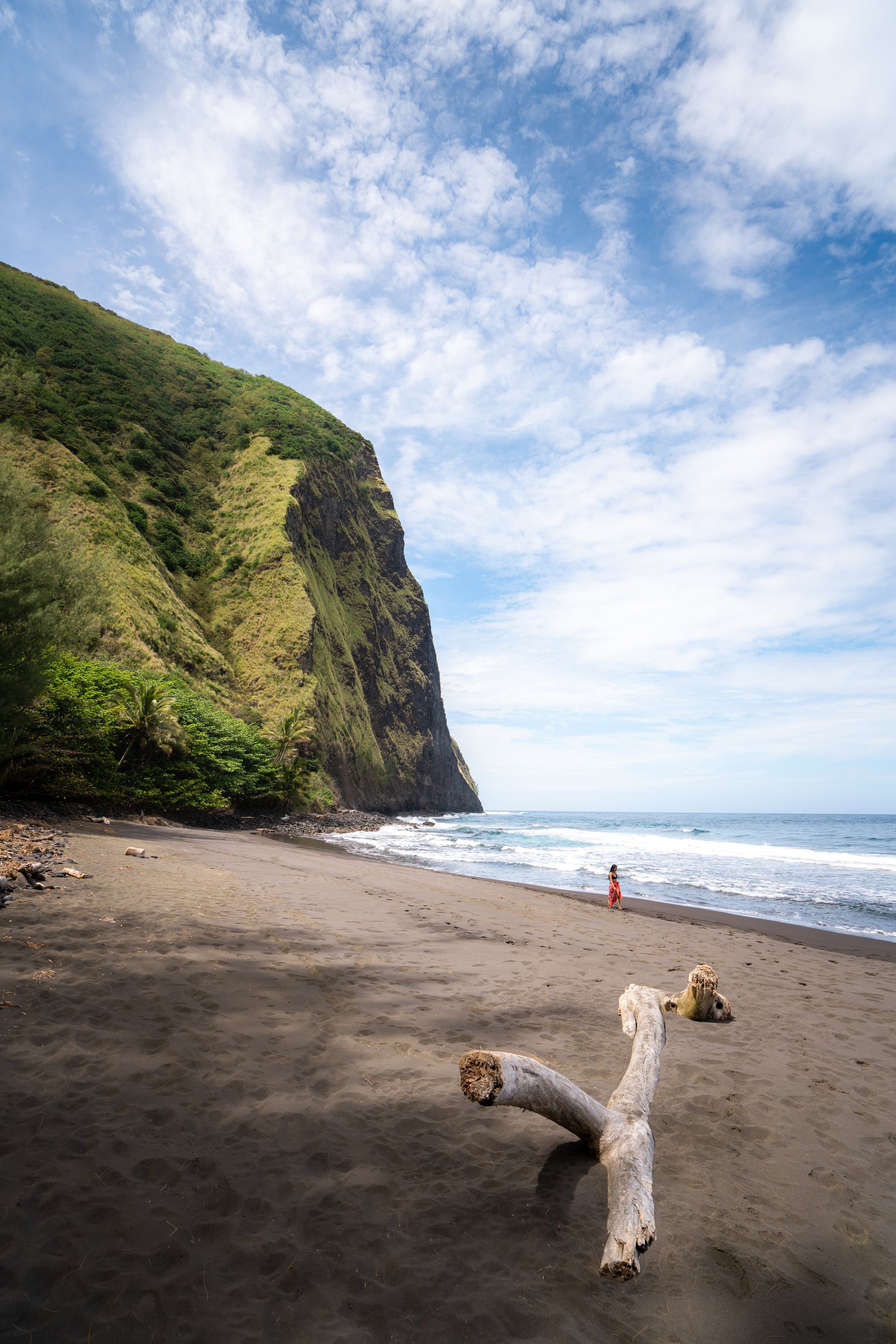Hiking the Nuʻuanu Trail on Oʻahu, Hawaiʻi
Distance (Roundtrip): 5.6 miles / 9.0 km
The Nuʻuanu Trail on Oʻahu is a relatively short, 2.8-mile (4.5 km) day hike off the Judd Trail in Nuʻuanu Valley that is most often seen as a connector trail within the larger Tantalus Trail network, which extends from Makiki Valley to the Koʻolau Summit atop Puʻu Kōnāhuanui.
That said, the Nuʻuanu Trail can most similarly be compared with the ʻAihualama Trail, located on the Mānoa Valley side of the mountain, as these two trails are seldom hiked on their own.
By this, I mean that just as the ʻAihualama Trail can be used to create a loop with Puʻu Kōnāhuanui and the Mānoa Middle Ridge Trail, the Nuʻuanu Trail is also a preferred route to create a loop with the Lulumahu Ridge Trail and Puʻu Kōnāhuanui.
All this to say, I personally think that the Nuʻuanu Trail makes for a great standalone day hike, which is something that I would not say about the ʻAihualama Trail.
However, for those interested in hiking to the summit of Puʻu Kōnāhuanui from Nuʻuanu Valley, know that the distance is 5.5 miles (8.9 km) each way, with an additional 860 ft. (262 m) of elevation gain compared to 4.1 miles (6.6 km) each way from the traditional Puʻu ʻŌhiʻa Trailhead on Tantalus.
Nuʻuanu Trailhead Parking
Parking for the Nuʻuanu Trail is located at the Judd Trailhead on the side of Nuʻuanu Pali Drive, but out of caution, consider the Judd/ Nuʻuanu Trailhead to be a high-crime area for petty theft. Never leave bags or anything valuable in your car.
To add to this warning, never park at this trailhead with an expired registration or safety check. The Honolulu Police Department and towing companies target this area for cars that they can legally tow if one of these two things is expired.
Google Maps Directions: Judd Trailhead
My Hawaiʻi Hiking Checklist
Osprey 3L Water Bladder - The Osprey 3L water bladder is the most universal hiking and backpacking water bladder on the market, and it’s my go-to because of the slide-off seal that allows it to be quickly filled from the top. Additionally, individual parts are easily replaceable, such as the bite valve.
Blister / Heel Protectors - I swear by these cheap, amazing heel protectors to prevent blisters for nearly every kind of hiking and backpacking that I do!
Black Diamond Headlamp - Personally, I recommend the Black Diamond Storm because it is one of the brightest, lightest, and longest-lasting headlamps on the market—and trust me, the weight-to-battery-life ratio really does matter!
Hiking / Trail Running Shoes - Depending on the type of trail, I prefer to use either the Keen Targhee for longer, more rugged hiking or the HOKA Zinal Trail-Running Shoe for lighter, less intense trails. In either case, both have been amazing to me for many years across countless environments, and both can be found in men’s and women’s sizes. - (Men’s Keen / Women’s Keen) (Men’s HOKA / Women’s HOKA)
Waterproof Rain Shell - You never know when it may rain, and I’ve learned over the years that a rain shell is far better than a rain jacket. By this, I mean that it’s best to have something that the water will roll right off of, which is why I recommend the Patagonia Torrentshell 3L available in both men’s and women’s sizes.
High SPF Sunscreen - Packing high-SPF sunscreen is a must for long days outside!
Hiking the Nuʻuanu Trail
The Nuʻuanu Trail begins at the Judd Trailhead and remains on the Judd Trail for the first 0.5 miles (0.8 km).
Nuʻuanu Stream
Within the first 0.1 miles (0.2 km), the Judd Trail crosses the Nuʻuanu Stream.
Unless the stream is running high, there is usually a way to cross on the rocks without getting your shoes wet.
Judd Loop Trail
On the far side of the stream, you can either go left (straight) around the upper side of the loop or right on the lower, but longer, side.
Personally, I recommend going left (straight) at the split, in order to take the fastest route to the Nuʻuanu Trail junction.
Read My Separate Post: Judd Trail
These Cook Pines are some of the most beautiful sections on the entire hike, and they make for a great place to take photos when the late afternoon light is just right!
Nuʻuanu-Judd Loop Junction
After 0.5 miles (0.8 km), the Nuʻuanu Trail will split to the left.
This is where all of the uphill begins for about 850 ft. (259 m) of elevation gain to the Pauoa Flats Trail on Tantalus.
If you are interested in learning more about the full Judd Trail Loop and the Jackass Ginger Pool, I encourage you to check out my separate article using the link below.
Read My Separate Post: Judd Trail
After the first few small switchbacks in the beginning, the Nuʻuanu Trail will climb four major switchbacks to gain the upper ridge that leads up to the Pauoa Flats Trail.
The photo below is the first of four switchbacks.
Upper Ridge
After walking under the beautiful Banyan Tree in the photo above, the Nuʻuanu Trail begins the upper ridge, which is where the best views on the entire hike can be found!
This ʻŌhiʻa-Koa forest is the only part of the entire Nuʻuanu Trail that passes through a predominately native forest.
Pauoa Flats Trail
The end of the Nuʻuanu Trail is the Pauoa Flats Trail. That said, one of the popular destinations to hike to on Tantalus is the Pauoa Flats Bench, located to the left, less than 0.5 miles (0.8 km) away from this junction.
If you have any interest in hiking some of the Tantalus Loop Trail or hiking to the beautiful Mānoa Cliff Restoration Area, I encourage you to use the map in the photo below or check out my separate article about the entire network of trails up on Tantalus.
Read My Separate Post: Tantalus Loop Trail
Pauoa Flats Bench (Puʻu Kōnāhuanui Ridge Trail)
As the saying goes, all Tantalus trails lead to K1.
While this is true regarding the Nuʻuanu Trail, I highly recommend reading my separate post if you’d like to learn more about hiking to the top of the Koʻolau Mountain Range.
I say this because beginning from the bottom of Nuʻuanu Valley wouldn’t be ideal, but as previously mentioned, the Nuʻuanu Trail does make for a great return hike if you’re considering Lulumahu Ridge or the Koʻolau Summit Trail (KST) up the Pali Notches to K1.
Read My Separate Post: Puʻu Kōnāhuanui Ridge Trail
Native Plants on the Nuʻuanu Trail
For the most part, the Nuʻuanu Trail is a heavily-invaded Oʻahu hike, with little to no native species below the upper ridge.
Still, there are a few to look out for, such as ʻŌhiʻa lehua, Koa, Uluhe, and Palaʻā.
If you would like to learn more about tons of native Hawaiian plants from across the islands, I encourage you to check out my separate post linked below.
Read My Separate Post: Native Hawaiian Plant Guide
More Oʻahu Adventures
If you’re interested in reading about some more amazing Oʻahu adventures, check out my separate posts below!
Best Hotels & Restaurants in Waikīkī
If you’re trying to decided where to stay on Oʻahu, check out my top 10 list for the best resorts and restaurants in Waikīkī.
I break down what makes one hotel a better choice over another, so that you can find the best fit for your stay on the island.
Read My Separate Post: Best Waikīkī Hotels & Restaurants
HNL Airport-Hotel Shuttle
Prices on ride-share apps like Uber/ Lyft cannot beat the price of booking your hotel shuttle prior to arrival. I say this because there are additional fees for ride-share airport pick-ups at Honolulu Airport (HNL), which is why I recommend booking your transportation in advance using the options below.
Additionally, the last option below will go as far as the Ko ʻOlina Resorts on the West Side and Turtle Bay on Oʻahu’s North Shore!
Best Way to Book Rental Cars!
I travel quite a bit, and I know firsthand that finding a good rental car deal can be a challenge, but that’s why I recommend comparing all of your options with Discover Cars.
In short, Discover Cars is a well-known, reputable business that allows you to search for the best deal across companies, and they have the best full-refund cancellation policy I’ve ever seen, valid up to 72, or sometimes even 48, hours prior to your reservation!
Book Here: Discover Cars
Visiting Other Islands
If you are visiting Oʻahu or heading to another island, check out some of my personal recommendations for Oʻahu, Maui, Kauaʻi, Molokai, Lānaʻi, and Hawaiʻi Island (Big Island) in these separate posts.
If you’re trying to decide which island is right for your visit, check out my overview about each island in the post below.
Read My Separate Post: What is the Best Hawaiian Island to Visit?
What is the Best Time of Year to Visit Hawaiʻi?
The weather in Hawaiʻi can often appear to be warm and beautiful throughout the year, but in my experience, there is a lot more to consider when planning what time of year to visit the islands, such as what island you are considering, what sides of each island do you plan to stay, what activities are you most interested in, the wildlife, and countless other nuanced variables that can all impact the type of trip you can expect to have.
For these reasons, I highly recommend reading through my separate article to not only understand my thoughts regarding the best time of year to come to Hawaiʻi but also what you need to consider based on the time of year that you plan to visit.
Read My Separate Post: What is the Best Time of Year to Visit Hawaiʻi?
10 Best Tours & Excursions on Oʻahu
There are a lot of different tour options to choose from on Oʻahu, but to make it easier to decide, I made a list of my favorite tours because some things simply are better with a local guide!
Read My Separate Post: Best Tours on Oʻahu
Safety
All hikes in Hawaiʻi should not be compared to trails outside of the islands, and hikers should exercise due caution on every adventure, given that many are extremely dangerous.
By this, I mean that Hawaiʻi is known for hot, humid weather, steep, dramatic, and unstable cliffs, and flash floods, which can occur without warning. Therefore, it is important that you check the local forecast, understand the physical condition of your entire group, and pack sufficient food and water before attempting any adventure.
Disclaimer
All information provided on this blog is for informational purposes only and is not intended to be a substitute for information or advice from qualified professionals or managing agencies.
Noah Lang Photography LLC makes no representations or warranties regarding the accuracy or completeness of the information provided here, and readers should use their own discretion, judgement, and seek professional advice where it is appropriate.
Furthermore, Noah Lang Photography LLC shall not be held responsible for any injuries, lost individuals, or legal issues arising from the use of information provided on this website, and if applicable, the above safety disclaimer should be referenced to provide a generic overview of the risks involved.
All said, the content on this blog is for the sole use of Noah Lang Photography LLC, and unauthorized use or reproduction of this content is strictly prohibited.
Disclosure
This post is not sponsored.
However, some of the links in this post are affiliate links, which means that I may earn a small commission if a purchase is made through one of those links. This commission comes at no additional cost to you, and I only recommend products that I personally use and believe will add value to my readers. Thank you for your support, which enables me to continue creating more!
To read the full privacy policy, click here.
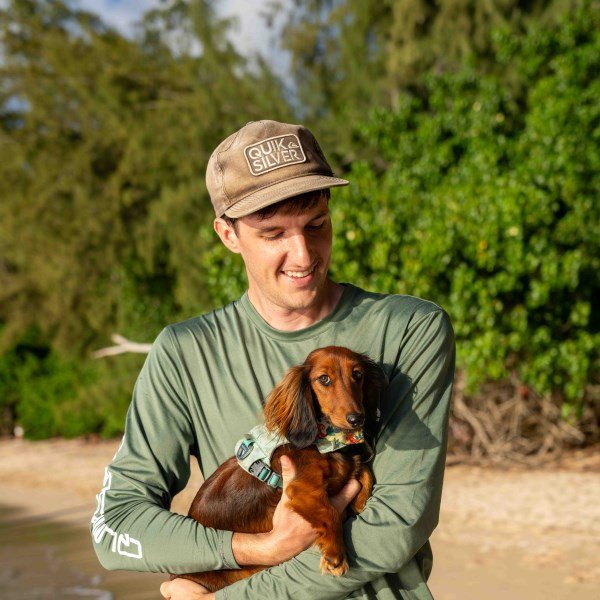
About This Blog
Noah Lang Photography, also known as @noahawaii, is 100% reader-supported!
I do not accept guest articles or sponsored content of any kind on my blog, which is why, if you enjoy the outdoor and travel content I create, please consider buying me a coffee!
I appreciate your support, which helps me continue to keep this blog alive!










